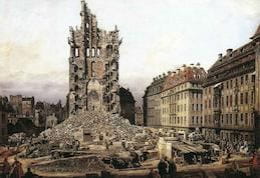Negotiating complex temporalities in ‘post–conflict’ spaces
This research area investigates the complex inter–relations between past, present and future, and the politics of time, within histories and memories of political violence, war and conflict.
Current and recent research projects and other activities
Complex Temporalities reading group, 2016–continuing. For details see here
Complex Temporalities: Unsettling Memories of Violence, a collective book project 2020–continuing
Current and recent PhD research
Hélène Marie Abiraad, Locating narratives of memory in social activism in postwar Lebanon. (Phd awarded 2020)
Gari Gómez Alfaro, Mapping Post-conflict Memory. Affective Landscapes, Imaginative Geography and the Public Uses of the Past in Derry/Londonderry (Northern Ireland) and Portbou (Spain), University of Brighton studentship
Ian Cantoni, Camp de Rivesaltes; topography of French cultural memory, AHRC/Techne studentship (PhD awarded, 2019)
Andrea García González, Multiple violences and practices of peace. A feminist approach to the post-ceasefire process in the Basque country, AHRC Techne Associate studentship (PhD awarded 2019)
Struan Gray, A haunted transition: reckoning with ghosts in postdictatorship Chilean film, University of Brighton studentship (PhD awarded 2019)
Lucy Kate Newby, Troubled Generations? An Oral History of Youth Experience of the Conflict in Belfast, 1969–1998, AHRC/Techne studentship (Phd awarded 2020)
Fearghus Roulston, Justa Notha Teenage Rebel: Belfast Punk and the Troubles, 1974–1979, AHRC/Techne studentship [PhD awarded 2019]
Melina Sadikovic, Narrating the war experience: the politics of war memory and commemoration within the framed peace process in Bosnia and Herzegovina, University of Brighton studentship (PhD awarded 2019)
Kasia Tomasiewicz, The Imperial War Museum and public memory of the Second World War, an AHRC/Techne Collaborative Doctoral Partnership award in collaboration with Imperial War Museums (Phd awarded 2020)
Staff researchers, postdoctoral researchers and honorary research fellows
Dr Ian Cantoni; Dr Thomas Carter; Prof. Graham Dawson; Dr Paul Gilchrist; Dr Andrea García González; Dr Struan Gray; Dr Tim Huzar; Dr Fearghus Roulston; Dr Melina Sadikovic. For details of individual research interests, see ‘Who We Are’ and follow the links
Contact: Dr Struan Gray S.Gray4@brighton.ac.uk
For further details of individual research interests, see our Pure profiles.
Background
This CMNH research area investigates recent interdisciplinary theoretical debates and empirical studies problematising linear conceptions of time, and explores the more complex temporalities and politics of time at work in diverse locations and spaces marked by political violence, war and conflict. Developed through a long-standing reading group led by doctoral and post-doctoral researchers, it originated in CMNH’s participation in the University of Brighton’s research cluster on “Understanding Conflict: Forms and Legacies of Violence”, 2013-17. It brings together UofB researchers in social and cultural history, cultural studies, social anthropology, cultural geography, psycho-social studies and literature to investigate the complex inter–relations between past, present and future within histories and memories of war and conflict that are produced in the time afterwards, by those living in ‘post–war’ or ‘post–conflict’ cultures and societies. In exploring the interplay between representations of a ‘past’ that in many ways is not ‘over’, but overshadows the present and complicates efforts towards the building of a peaceful future, the project focuses in particular on the sites and cultural landscapes where war and conflict ‘took place’, and where its continuing significance is contested in post–conflict geographies.
Several fully-funded doctoral studentships have been established in the early stages of this evolving project: Garikoitz Gomez Alfaro (University of Brighton studentship ‘Landscapes of affect’), ‘Mapping Postconflict Memory: Affective landscapes, imagined geographies and the politics of of time in Derry/Londonderry (Northern Ireland) and Portbou (Spain)’; Lisa Hardie (University of Brighton ‘Understanding Conflict’ studentship ‘Negotiating post-conflict spaces’), ‘Memorial Landscapes: The Case of New Zealand Visitors to Gallipoli’; Ian Cantoni (AHRC/TECHNE consortium studentship), ‘Camp de Rivesaltes: A Topography of French Cultural Memory’; and Struan Gray (University of Brighton ‘Understanding Conflict’ studentship ‘Histories, memories and the sites and spaces of conflict: Tropes of haunting in negotiating violent pasts’), ‘A Haunted Transition: Places of Past Violence in Post-Dictatorship Chilean Film’. Other doctoral students based and supervised in CMNH work on ‘post-conflict’ culture and politics, in Bosnia-Herzegovina (Melina Sadikovic) and the Basque Country (Andrea García González), as well as Northern Ireland

